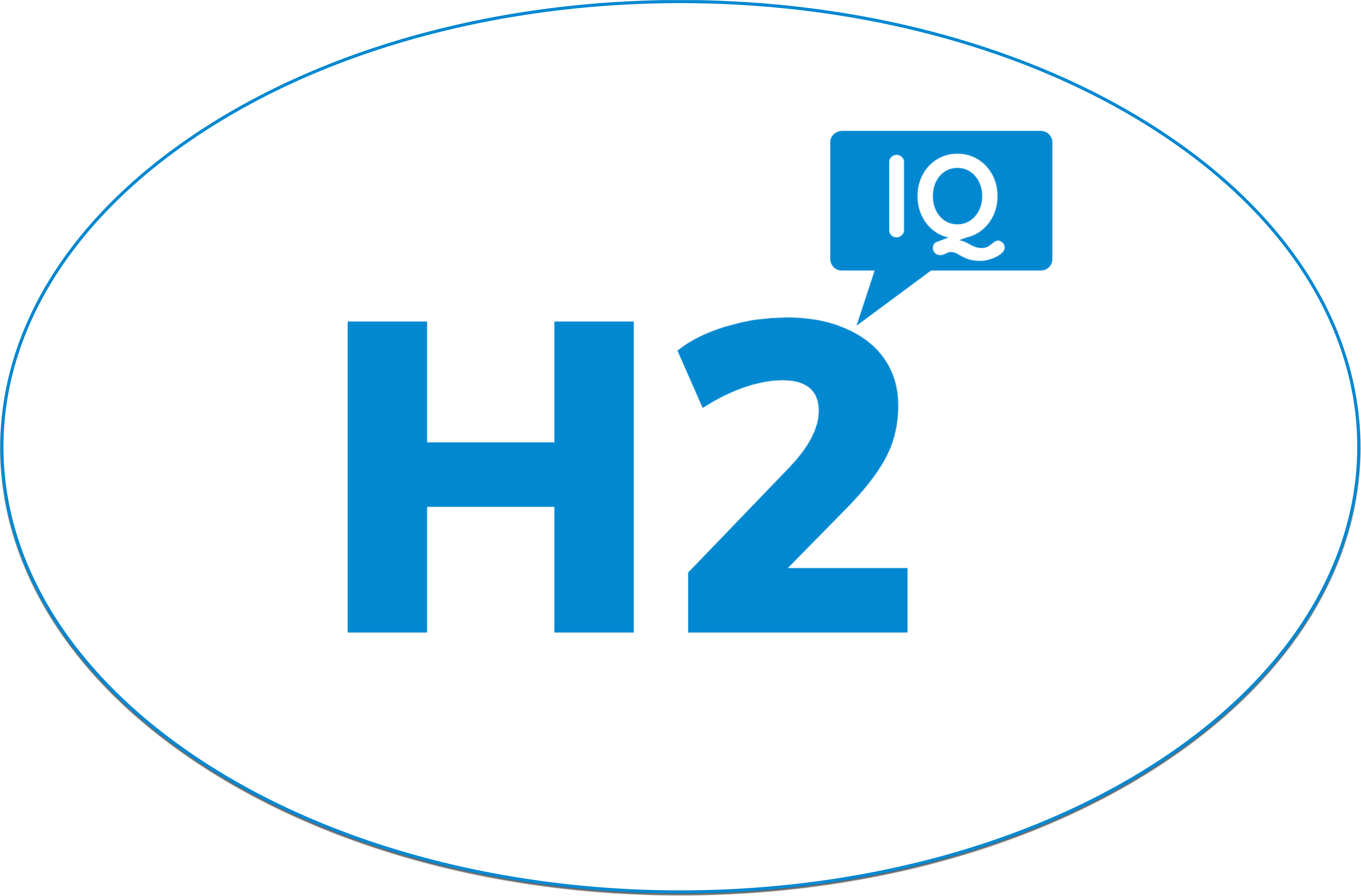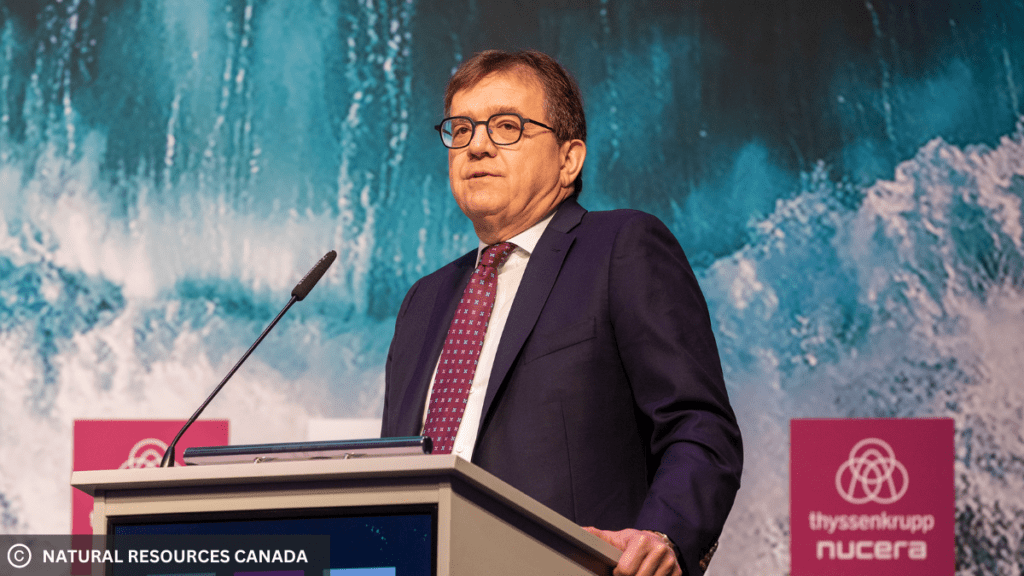
The world is moving toward a global, net-zero economy in order to address the existential threat of climate change. This transition is generating a significant increase in demand for clean energy and technologies, and the raw materials that enable them.
Concurrent geopolitical dynamics, including Russia’s illegal invasion of Ukraine, demonstrate the need for like-minded countries to have stable and secure supplies of these technologies and resources — produced in a way that is compatible with climate and nature goals and in meaningful consultation and partnership with Indigenous Peoples.
This need presents a generational economic opportunity for Canada — and the Government of Canada is working to seize this opportunity to make Canada a clean energy and technology supplier of choice in a net-zero world. To that end, this week the Government of Canada announced historic investments through Budget 2023 in clean energy, including incentives and tax measures to support clean electricity, clean hydrogen and critical minerals.
The Honourable Jonathan Wilkinson, Minister of Natural Resources, brought this message to the Berlin Energy Transition Dialogue (BETD) this week in Berlin, Germany. Minister Wilkinson was joined by a Canadian trade mission featuring more than 15 Canadian companies, organizations, Indigenous communities and representatives seeking to pursue commercial opportunities in clean energy.
During the three-day mission, Minister Wilkinson pursued three objectives in pursuit of this generational economic opportunity for Canada. They were:
- Getting Canadian clean energy to Europe. To this end, the Minister:
- together with Vice Chancellor of Germany Robert Habeck, announced that Canada and Germany are taking the next steps in the Canada-Germany Joint Declaration on Hydrogen to advance four strategic areas of mutual interest under an Action Plan, namely:
- working toward global standards for carbon intensity certification and social ecological sustainability, recognizing existing legislation and regulations as well as progress under multilateral fora;
- exploring port-to-port collaboration;
- identifying Canadian and German measures to accelerate investments in hydrogen projects including to manage project risk; and
- establishing platforms to raise and address issues related to hydrogen development, trade and industrial transition.
- advanced multilateral discussions on clean hydrogen trade with key allies such as Germany and France to:
- accelerate production and export of clean hydrogen; and
- develop global carbon intensity and sustainability standards to facilitate trade in clean hydrogen between Canada and all its international partners.
- Accelerating energy transition policies and bolstering energy security in Europe. To this end, the Minister:
- profiled the work being advanced under Mr. Wilkinson’s chairmanship of the International Energy Agency’s Ministerial Task Force on Gas and Clean Fuels Market Monitoring and Supply Security;
- highlighted Canada’s forthcoming donation of seven electrical transformers to help repair Ukraine’s power grid, enabling Ukrainians to power their homes and use the most basic appliances; this donation will follow the Canadian Broadcasting Corporation’s donation of 12 large generators and 12 smaller ones to support the Ukraine media, delivered in March 2023.
- met with European counterparts to discuss the importance of taking action to advance energy transition and security and of ensuring secure and sustainable critical minerals supply chains; and
- met with German Galushchenko, Ukraine’s Energy Minister, to discuss Canada’s ongoing support to strengthen Ukraine’s natural resource supply chains and ensure energy security, including nuclear. This discussion builds upon work between Canada and Ukraine, including Minister Wilkinson’s membership in the High-Level Energy Advisory Council (IEAC).
- Strengthening business-to-business ties between Canada and Germany in the area of energy and resources. To this end, the Minister:
- together with Vice Chancellor Habeck, convened industry leaders to strengthen clean energy and sustainable critical minerals trade and investment ties between our countries; and
- profiled the important role Indigenous communities are playing in the development of clean energy and sustainable critical minerals projects.
Minister Wilkinson’s efforts in Berlin build on recent productive visits from key European leaders to Canada, including:
- German Chancellor Scholz’s visit to Quebec, Ontario, and Newfoundland and Labrador in August 2022; and
- European Commission President Ursula von der Leyen’s visit to Ontario in March 2023.
Canada and Germany are like-minded global partners with a shared commitment to bolstering multilateralism and the rules-based international order. This week’s mission to Berlin was part of a series of significant steps the Government of Canada continues to take to create good jobs across Canada while supporting its international allies and fighting climate change. Canada and Germany enjoy a close and friendly partnership, reflected in our active cooperation on the international stage as well as a strong economic and investment relationship.
Next month, Minister Wilkinson will travel with the Honourable Steven Guilbeault, Minister of Environment and Climate Change, to Sapporo, Japan, for the G7 Ministers’ Meeting on Climate, Energy and Environment. There, Minister Wilkinson will continue to work with all partners to establish Canada as the global supplier of choice for clean energy in a net-zero world — ensuring a prosperous and clean future for Canadians from coast to coast to coast.
Quotes
“Canada and Germany are allies in the support of Ukraine, in NATO and in energy and climate. This week, we made tangible progress on building secure and clean energy systems between our two countries, and I look forward to continuing to work with our German friends in this space.”
The Honourable Jonathan Wilkinson
Minister of Natural Resources
“We are eager to accelerate our Hydrogen Alliance initiatives with a joint action plan focused on key areas of interest. With Canada as a reliable partner, we are working toward receiving the first shipments of green hydrogen derivatives in just a few years.”
Robert Habeck
Vice Chancellor and Federal Minister for Economic Affairs and Climate Action
Quick facts
- Concrete progress is also being made within the private sector to deliver critical minerals and the clean technologies they enable to Europe:
- Last June, Cellcentric (a joint venture between Volvo Trucks and Daimler Truck) established a research and production facility for heavy truck fuel cell stacks in Burnaby, B.C.
- Last summer, Canada signed two new MOUs with Volkswagen and Mercedes-Benz to advance collaboration across the automotive, battery and critical minerals sectors.
- In March 2023, Volkswagen announced that its subsidiary PowerCo will establish an EV battery gigafactory in Ontario, Canada. Last summer, it also signed an MOU with Canada to advance collaboration across the automotive, battery, and critical minerals sectors.
- Last year, Everwind signed MOUs with Uniper and EON to ship up to one million tonnes per year of ammonia to Germany.
- Recently, Mercedes-Benz has signed a supply agreement with Canada-based Rock Tech Lithium Inc. for battery-grade lithium hydroxide to be produced from a planned lithium converter facility in Brandenburg, Germany, and sourced from Rock Tech Lithium’s Georgia Lake lithium project in Ontario. Mercedes-Benz also signed an MOU with Canada to advance collaboration across the automotive, battery and critical minerals sectors.
- Rio Tinto and BMW have signed a MOU to supply clean, low-carbon aluminum.
- In March 2022, Canada released its strengthened climate plan, 2030 Emissions Reduction Plan: Clean Air, Strong Economy, which advances Canada’s goals of reducing greenhouse gas emissions by 40 to 45 percent below 2005 levels by 2030 and reaching net-zero emissions by 2050.
- Concrete progress is being made within the private sector to deliver clean hydrogen to Europe:
- EverWind Fuels’ initial production facility in Point Tupper, Nova Scotia, recently received approval of its Environmental Assessment from the Province of Nova Scotia, clearing the path for construction to commence this year.
- A neighbouring project in Nova Scotia is Bear Head Energy, which is also currently advancing through the regulatory process with the provincial government.
- Another leading Canadian project is World Energy’s Project Nujio’qonik, in Stephenville, Newfoundland and Labrador, which hosted the signing ceremony for the Hydrogen Alliance last August. This multi-phase development is also on track to deliver product to Germany within the 2025 timeline.
- And of course, one of Canada’s leading independent power producers, Northland Power, has been active in Germany’s offshore wind sector for many years. As Canada develops our own regulatory framework for offshore wind, Northland will be able to bring this experience home to advance wind to hydrogen projects with its local partners.
- There is also the good work being done by StormFisher, which has entered into a partnership with Kiwi AG to advance the development of clean hydrogen-related projects in North America and Europe.
- In November 2022, Minister Wilkinson announced up to $800 million in project funding to advance Canada’s clean fuels sector.
- In December 2022, the Government of Canada unveiled its $3.8 billion Canadian Critical Minerals Strategy to increase the supply of responsibly sourced resources and support the development of domestic and global value chains for the green and digital economy. Over $344 million of this funding is supporting the following five new programs and initiatives:
- Critical Mineral Technology and Innovation Program
- Critical Minerals Geoscience and Data Initiative
- Global Partnerships Program
- Northern Regulatory Initiative
- Renewal of the Critical Mineral Centre of Excellence
- Germany and Canada are founding members of the Sustainable Critical Minerals Alliance
- The EU is the world’s largest trading bloc. In 2022, Canada and the EU celebrated the fifth anniversary of the provisional application of the Canada-EU Strategic Partnership Agreement (SPA) and the Canada-EU Comprehensive Economic and Trade Agreement (CETA), which is creating opportunities for businesses and good, middle-class jobs for workers on both sides of the Atlantic. In 2021, Canada-EU bilateral merchandise trade was $100 billion (67.5 billion euros), an increase of more than 33 percent since CETA’s provisional application in 2017.
- The Canada-EU Strategic Partnership on Raw Materials, signed in 2021, focuses on enhancing security and sustainability of trade and investment; the integration of raw material supply chains, science, technology and innovation collaboration; and environmental, social and governance criteria and standards.
- The Canada-EU relationship is the oldest formal relationship the EU has with any industrialized country, dating back to 1959
- Joint declaration of intent between the Government of Canada and the Government of the Federal Republic of Germany on establishing a Canada-Germany Hydrogen Alliance
IMAGE (above): Canadian Minister of Natural Resources Jonathan Wilkinson speaking at the Berlin Energy Transition Dialogue in Berlin, Germany, from March 27-30, 2023. (Credit: Natural Resources Canada Twitter Page)





